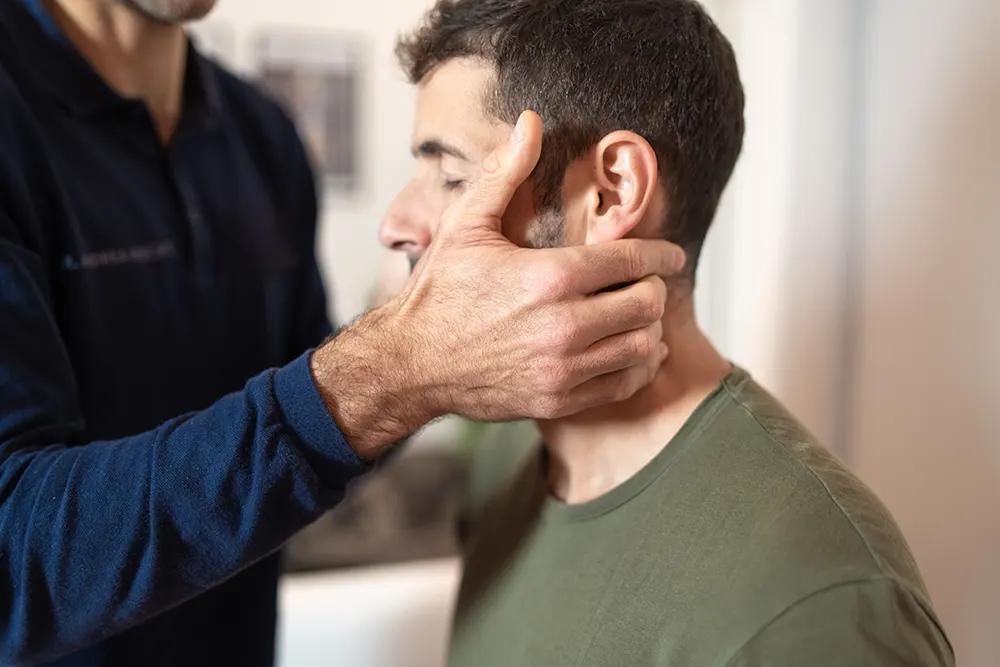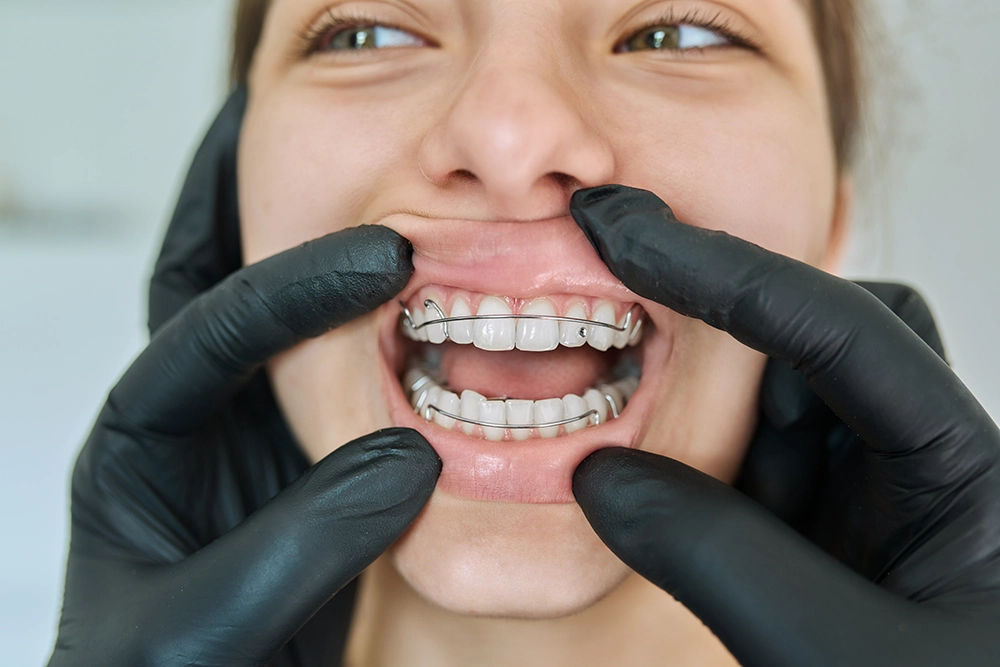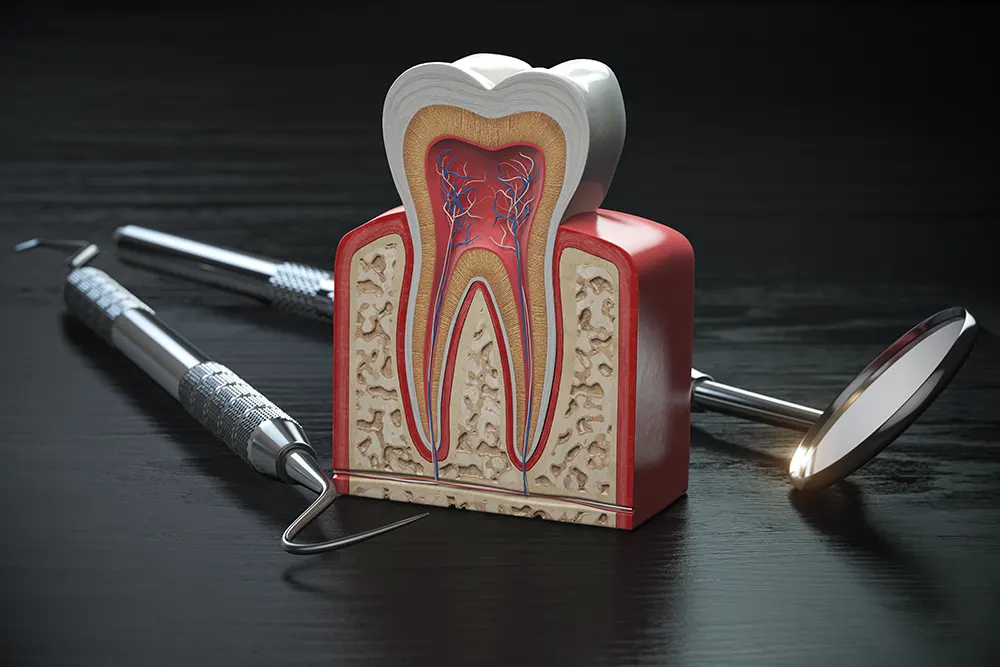Temporomandibular Joint Treatment
TMJ Treatment Dubai (Temporomandibular Joint Treatment)
Temporomandibular Joint (TMJ) is the name given the joint where the two jaws meet. A disorder of this joint is called TMD (Temporomandibular Joint Disorder) characterized by pain and discomfort in the region. The TMJ is similar to other joints comprising of bone, muscles, nerves, and blood vessels. The Temporomandibular Joint connects the mandible (lower jaw) to the temporal bone (upper jaw) in front of the ears on either side.
Symptoms of TMD (Temporomandibular joint Disorder) is facial tension or pain, ear ache, headaches or migraines, neck and sometimes shoulder pain as well, jaw clicking and trouble opening jaws wide.

Causes of Temporomandibular Joint Disorder (TMD)
- Bruxism is the process of teeth grinding or teeth clenching putting pressure on the TMJ
- Malocclusion is bad bite and frequent pressure put on the TMJ leads to muscle tension, headache and facial pain.
- Frequent gum chewing, thumb sucking, and teeth grinding also leads to TMD
- Traumatic Injuries directed at the jaw
- Stress is the leading cause of TMD

Treatment Options for Temporomandibular Joint disorder
- With the help of orthodontics dentists correct bad bite allowing upper and lower jaw to meet harmoniously
- Mouth guards are used as treatment for teeth grinding
- The jaws are exercised to reduce stress and tension in the area
Stress management in life itself.-
Common Symptoms of TMJ Disorders
TMJ (temporomandibular joint) disorders can present with a variety of symptoms that can affect daily life and overall well-being. Understanding these common symptoms can help individuals identify potential issues and seek appropriate treatment.
- Jaw pain or tenderness: TMJ disorders cause intermittent or persistent discomfort in the jaw joint. It can range from mild to severe.
- Difficulty chewing: TMJ disorders lead to pain or discomfort while biting, chewing, or opening the mouth wide, affecting eating and speaking.
- Clicking or popping sounds: The jaw may produce clicking, popping, or grating sounds when opening or closing the mouth, sometimes accompanied by a temporary sensation of jaw lock.
- Headaches and facial pain: TMJ disorders contribute to frequent headaches, especially from the temples or sides of the head. Facial pain, including cheek or ear pain, is also common.
- Ear-related symptoms: TMJ disorders cause earaches, tinnitus (ringing in the ears), or a feeling of fullness or pressure, which can be mistaken for an ear infection.
- Limited jaw movement: Some individuals with TMJ disorders have difficulty fully opening or closing their mouth, impacting activities like yawning, speaking, or singing.
What is TMJ and what causes it?
What are the common symptoms of TMJ disorders?
How is TMJ diagnosed?
What are the treatment options for TMJ disorders?
Can TMJ disorders be cured?
How long does TMJ treatment take to show results?
Related Services

Lingual Braces

Wisdom Tooth Extraction


